What can be done about affordable housing in Saint Paul?
A summer library series sparks the creation of the first-of-its-kind East Side Housing Summit.
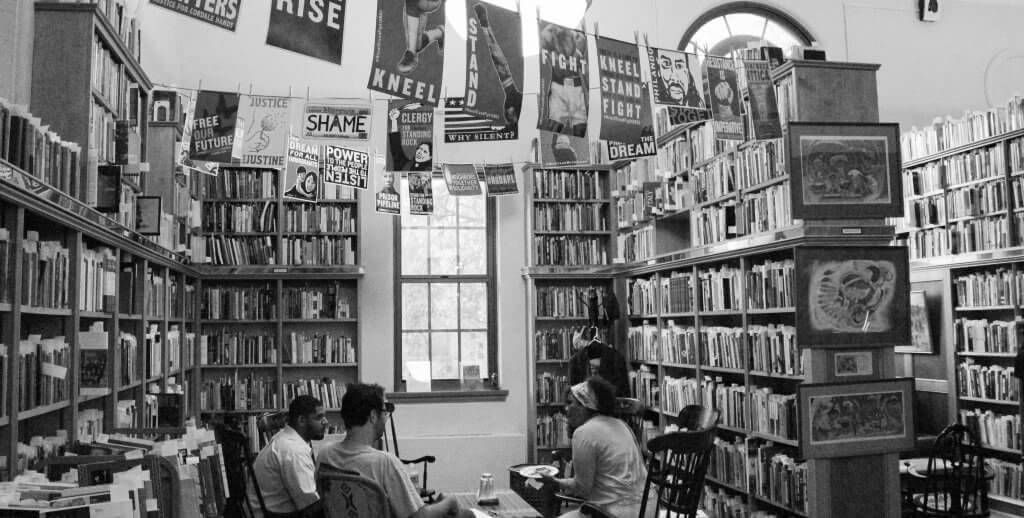
The East Side Freedom Library is nestled in the heart of Saint Paul's Payne-Phalen Neighborhood. On the outside? A historic Carnegie Library façade surrounded by proud oak trees. On the inside? A sunlit space, filled floor-to-ceiling with diverse books, artifacts, artwork and the Hmong Archives. It’s a space that is ripe for curiosity and conversation, one that may even prompt some to describe it as magical.
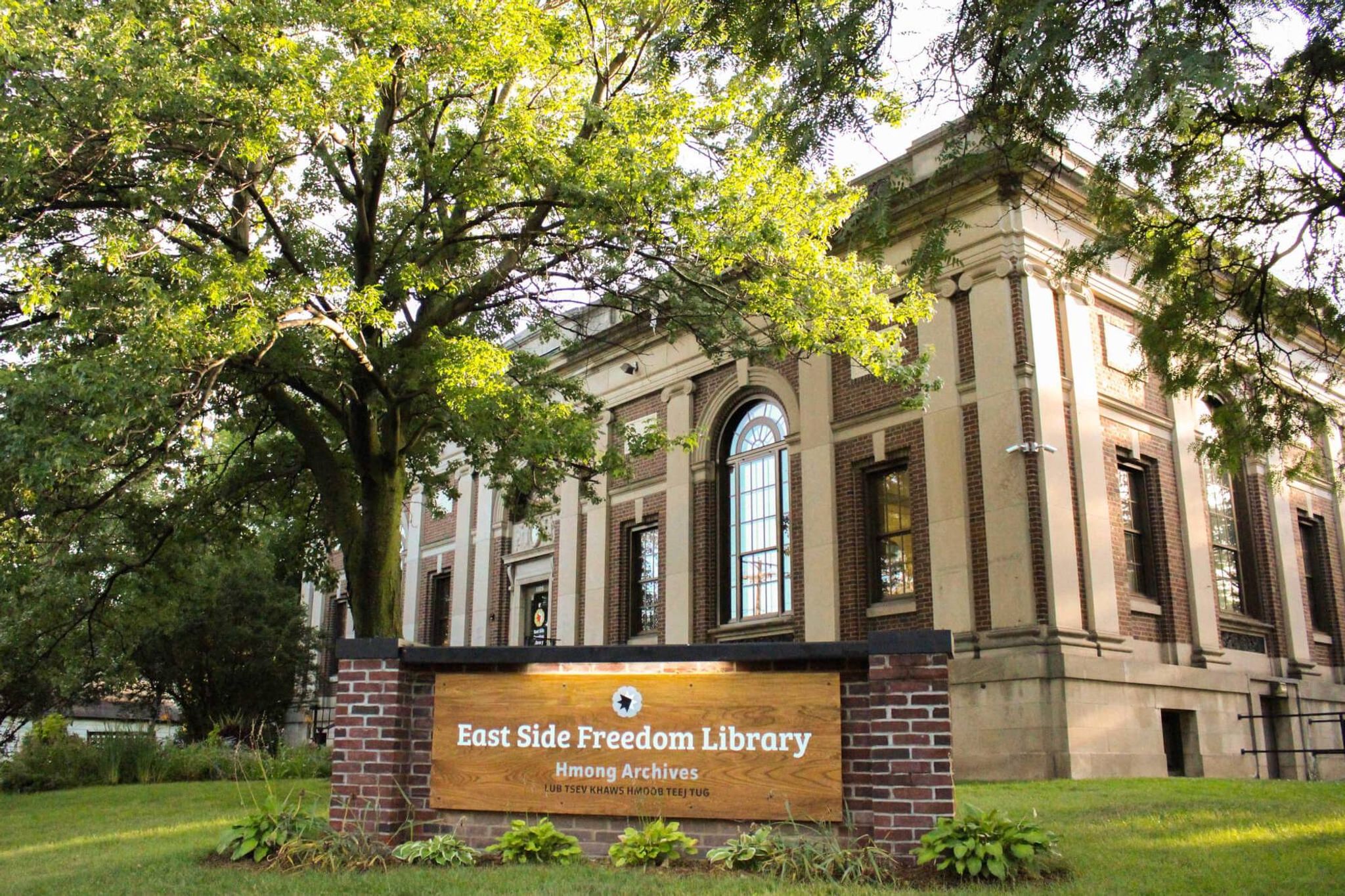
Led by former Macalester College professor and historian Peter Rachleff, East Side Freedom Library (ESFL) has become a space for all to feel welcome and live out the library’s mission to:
Inspire solidarity, advocate for justice and work toward equity for all.
ESFL is literally an “open book” to the East Side community. A thoughtfully-curated lineup of weekly events invites participation at book-readings, performances, panel discussions and film screenings, all designed to build a stronger community around connecting on issues that matter.
This summer, ESFL hosted an event focused on disparities in home ownership between white Minnesotans and Minnesotans of color. “We realized we had a long way to go to empower ourselves as a community and face the systemic elements of housing inequality we started to see in Saint Paul,” the organizers shared.
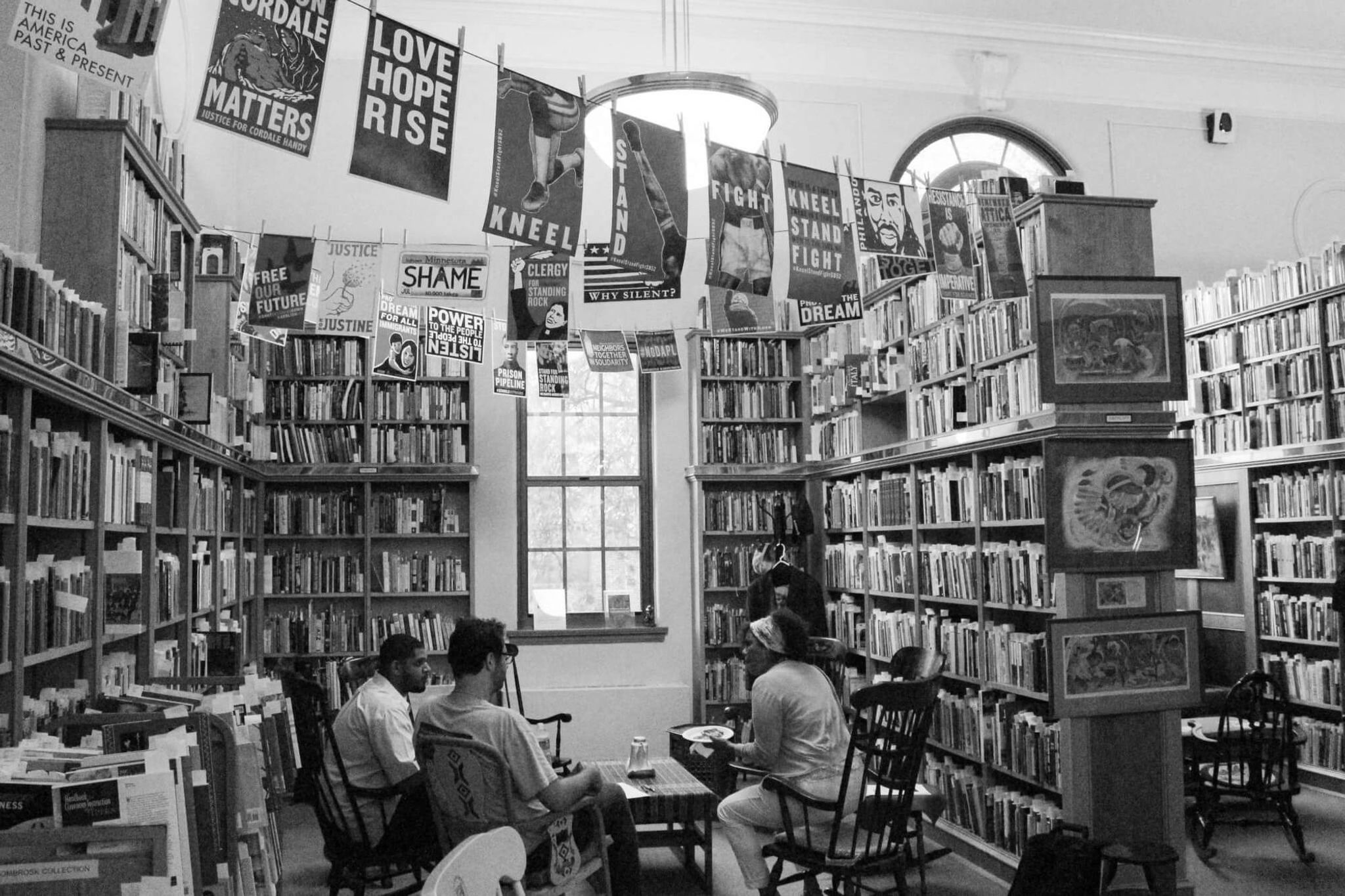
So ESFL partnered with ABC Realty, Twin Cities PBS (TPT), Dayton’s Bluff Neighborhood Housing Services, the Metropolitan Interfaith Council on Affordable Housing, Cookie Cart and Home Ownership Center on a summer series of screenings and community conversations to, once again, bring people together to have conversations and find solutions around the need for fair, equitable and affordable housing for residents on the East Side of Saint Paul.
Attend the first-ever East Side Housing Summit on November 12, 2019!
Space to Talk About Today
Affordable housing is under constant threat from changing economic forces and urban developments that break up vital communities. Low-income residents have fewer and fewer options, and local businesses and schools must deal with the impact of losing those families. The series kicked off with a screening of TPT’s Sold Out: Affordable Housing At Risk.
Throughout the series, films such as Sold Out were used as catalysts for conversation. Community members, renters, home buyers, community activists, realtors, and homeless men and women shared their views and voices in small-group discussions.
At the Sold Out screening, the packed house was broken into three discussion groups by theme: Housing and Community Organizing; Tenants and Rights; and Rent Control.
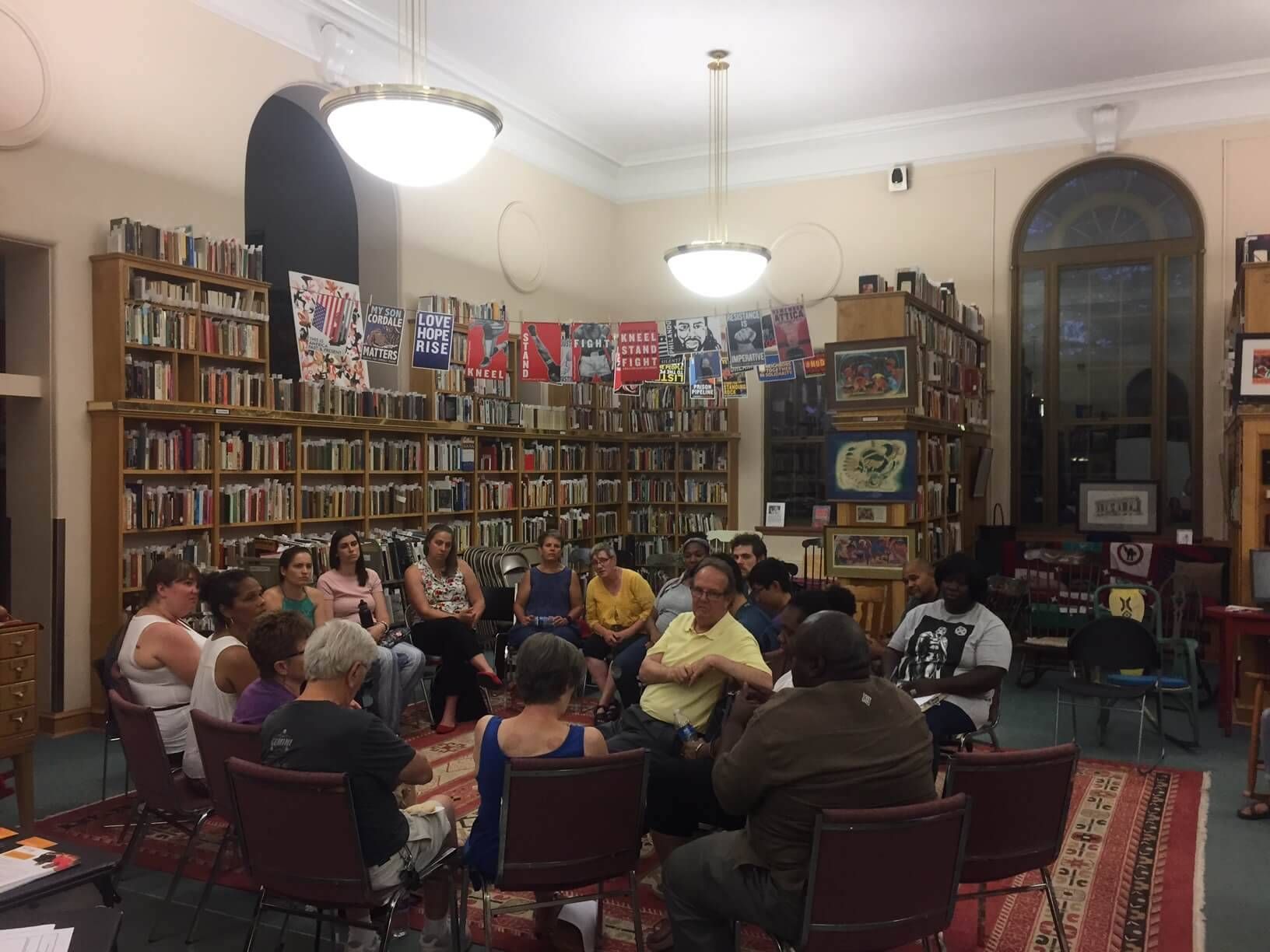
Many shared worries about youth access to affordable housing, increasing rents and the availability of senior housing. Others talked of solutions, and a consistent theme emerged: “There’s gotta be creativity.” One participant cited tiny houses being put on church properties as a good example. Another mentioned a group of Somali grandmas organizing change in their Cedar-Riverside community. “It takes working together,” and also “holding our elected officials to this and making them include it in their platforms," others shared.
“What struck me was that we need a lot of work on zoning laws to allow for more affordable housing. If people can organize around that and then work with city officials, this is a first step. How can you 'crack this nut' in areas where people still don’t want it 'in my own backyard?'" one participant wondered.
One young attendee voiced concerns about how college debt is keeping him from safe and affordable housing options. “I can’t relate to the millennials in the film,” he said, referring to those portrayed in the film who could purchase luxury apartments.
And many shared that they don’t see a lot solutions coming directly from the community. “We need to talk more to people who are impacted and ask, 'How do we bring these voices into focus?'"
“Minnesota is not empowering those affected. They give money to those helping those affected," said one attendee.
"We’re deciding for people. We need housing development to be led by people of color and low-income people,” said another participant.
Another asked, “How do we help those with zero funding organize?”
The event series organizer, Seanne Thomas with ABC Realty shared, “It really is true… We all do better when we all do better. I dream of a 38 percent cap in rent and a $28-an-hour minimum wage.”
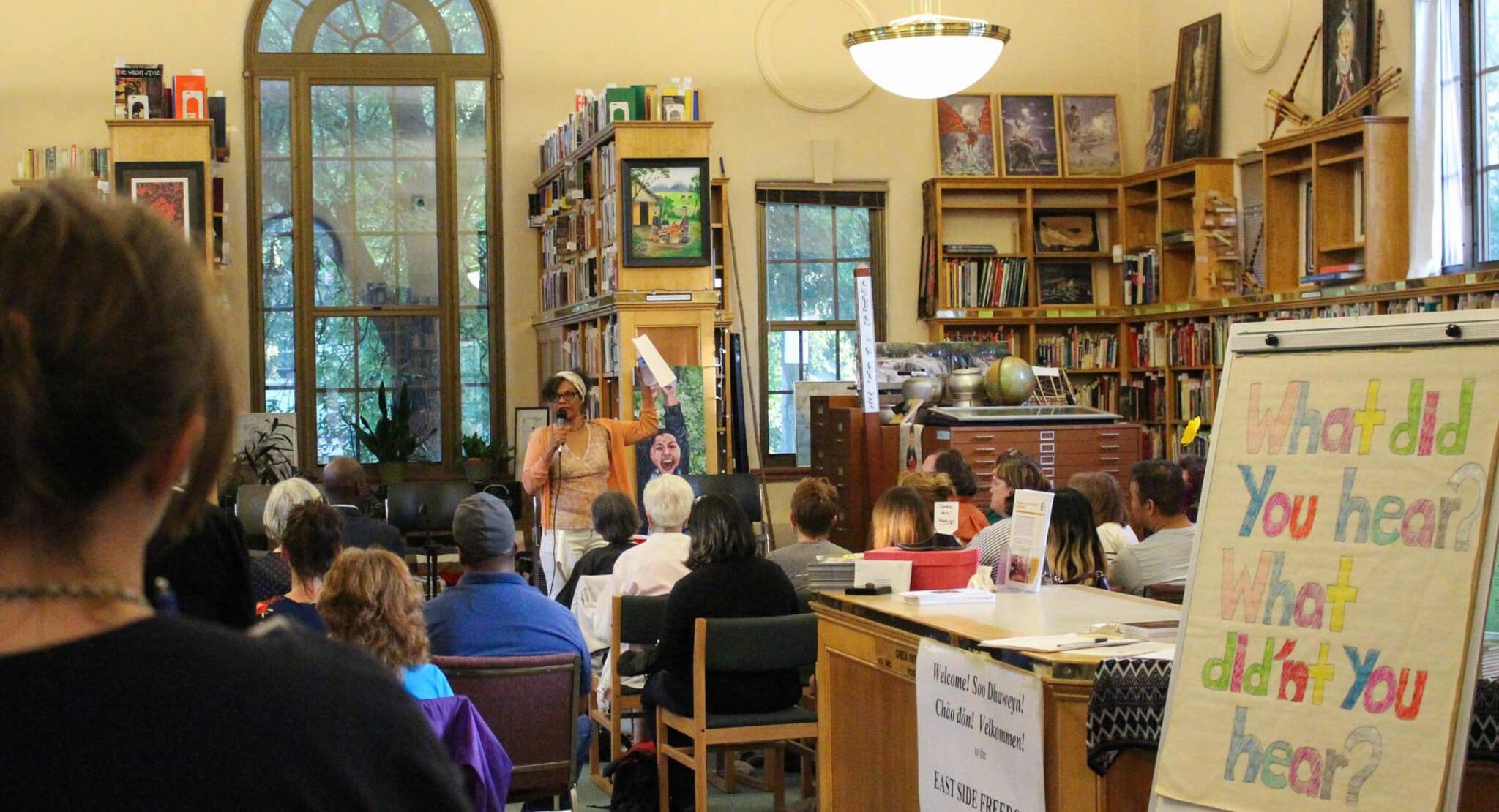
A second film in the series, Detroit 48202, features the story of a veteran mailman and provides an intimate glimpse of Detroit residents' resistance to boom-and-bust capitalism and structural racism. Another conversation-sparker.
Space to Reflect on the Past
Many questions persists, however, including one that's at the root of the state's housing crisis: Why does Minnesota suffer some of the worst racial disparities in the nation? One answer is the spread of racist, restrictive, real estate covenants in the early 20th Century. Roots of racial disparities are seen through a new lens in TPT’s Jim Crow of the North that explores the origins of housing segregation in the Minneapolis area.
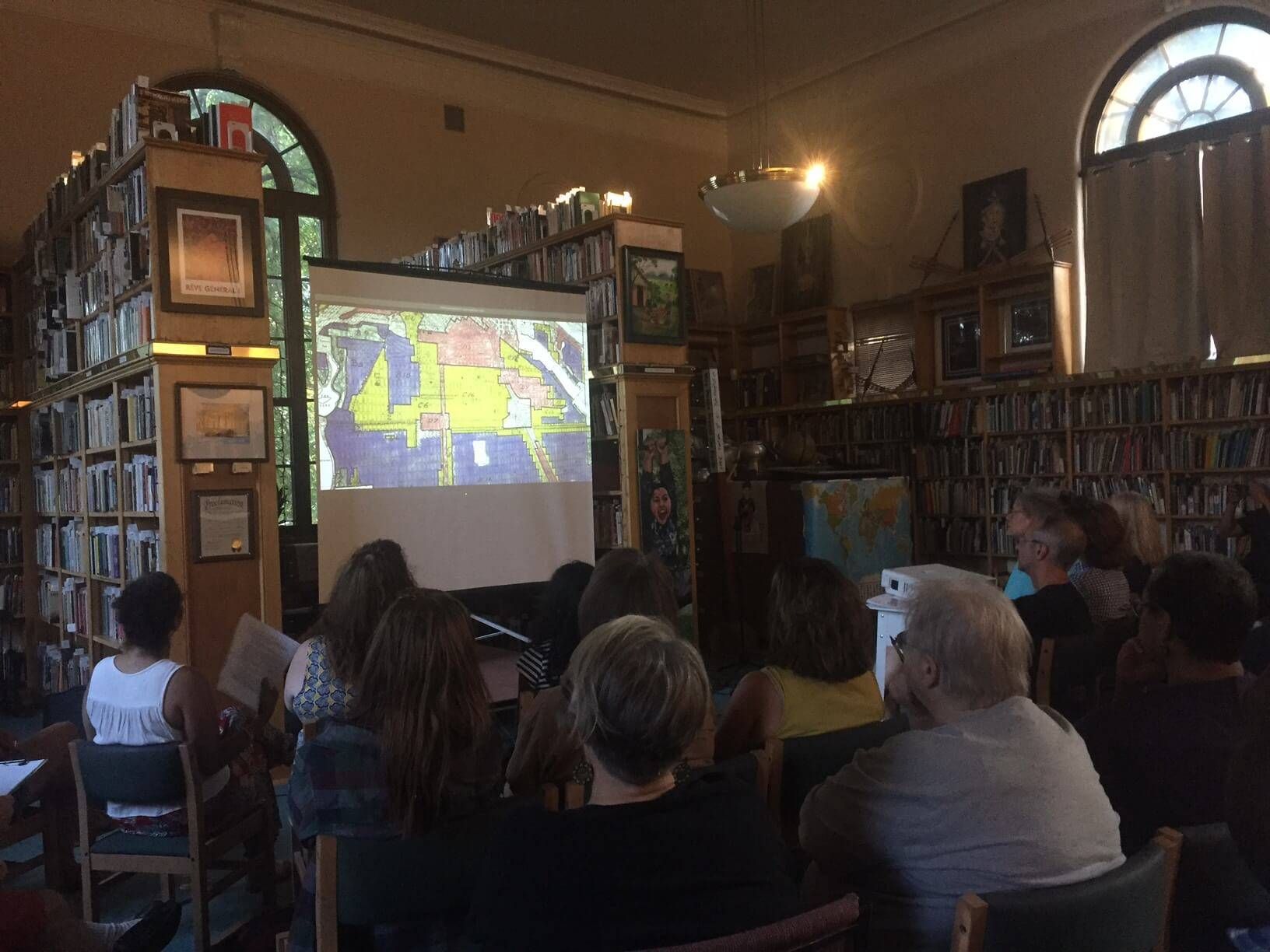
The final film in the summer film series, TPT’s Jim Crow of the North asked community members to reflect on this history, and a range of perspectives were shared along the way:
“I had no idea what the role racial covenants played in Minnesota history. I grew up in a majority white community and never thought about why.”
“I am very involved in my community, but how much am I blind to? We’re still keeping people 'other.'”
Since its premiere, Jim Crow of the North has been embraced by dozens of community groups as a tool to helps visualize the history and show us how we got to where we are today. “Everything is interconnected. Redlining lines up in the very worst ways with park systems," remarked one attendee.
"When we see the overlays on the maps, it’s a red dot. But what does that red dot mean for me and for my neighbor?”
“I will vote. I will support financially, mentally, any way I can, people of color. I will tell this story to anyone who will listen! We can’t let this be something we bring up in 20 years, as it’s something we don’t want to repeat,” declared one participant.
As the event continued, a few responses punctuated the conversation:
“How can we shift power?”
“Don’t be fearful. Talk about this. Share this on social media. Share the trailer and invite people into this story. I’ve seen firsthand how conversations can be life-changing.”
“I volunteered for Mapping Prejudice. It was powerful to map it. It was transformative. It makes me want to look at my own deed."
"To me it felt like history. but this film helps me see that this is present and still shaping today.”
“I want to see this done in Saint Paul. I want to show this movie on my porch. I want to show this to everyone and ask them to bring their deeds … because this makes it personal. The film makes me curious to know my own history.”
A Black Gulf War veteran concluded the conversation with poignant observations:
“A simple solution is to share the history. That creates insight into the way things are the way they are. It’s a start. The truth hurts. But the truth can set you free. It will be uncomfortable. When it’s out there and we accept it, then we can move forward.
He added, "Conversation moves things forward. And always keep that door open. Open and honest dialogue is where this starts and healing can begin.”
Space to Hope for the Future
To culminate the summer series, ESFL and its community partners for the series held a final forum featuring Minnesota Housing and Financing Agency Commissioner Jennifer Ho, the Deputy Director of Saint Paul's Planning and Economic Development Department's Kristin Guild, and the creators of Sold Out and Jim Crow of The North, Kevin Dragseth and Daniel Bergin respectively, along with other community partners to talk about creating equitable housing.
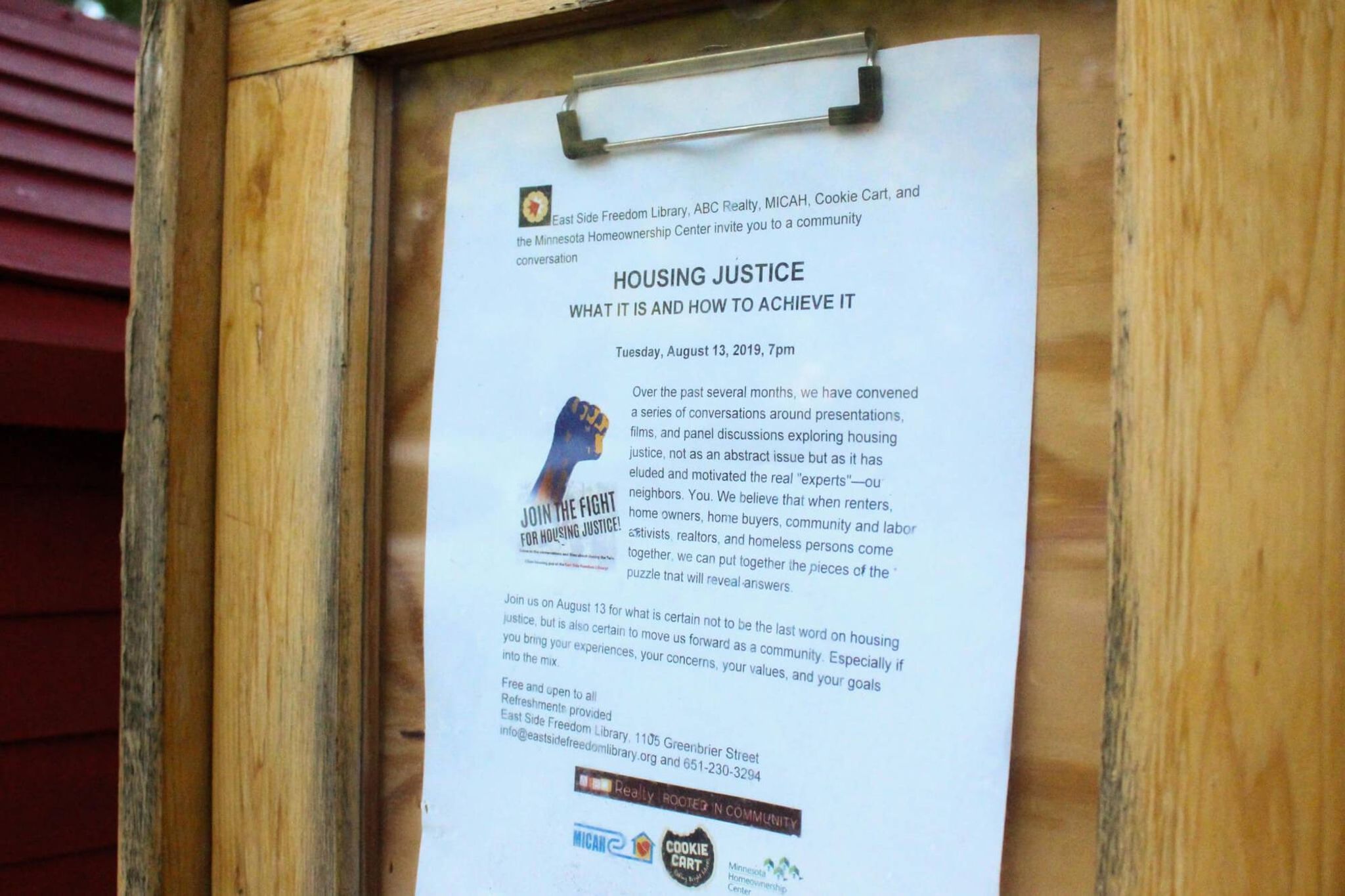
Jim Crow of the North producer, Daniel Bergin, responded to a community member who commented on the film and made a case for reparations, “You mentioned reparations. You just saying that normalizes it. We’ve been working on these issues for generations. There’s power in storytelling with data. There’s undeniable clarity there.”
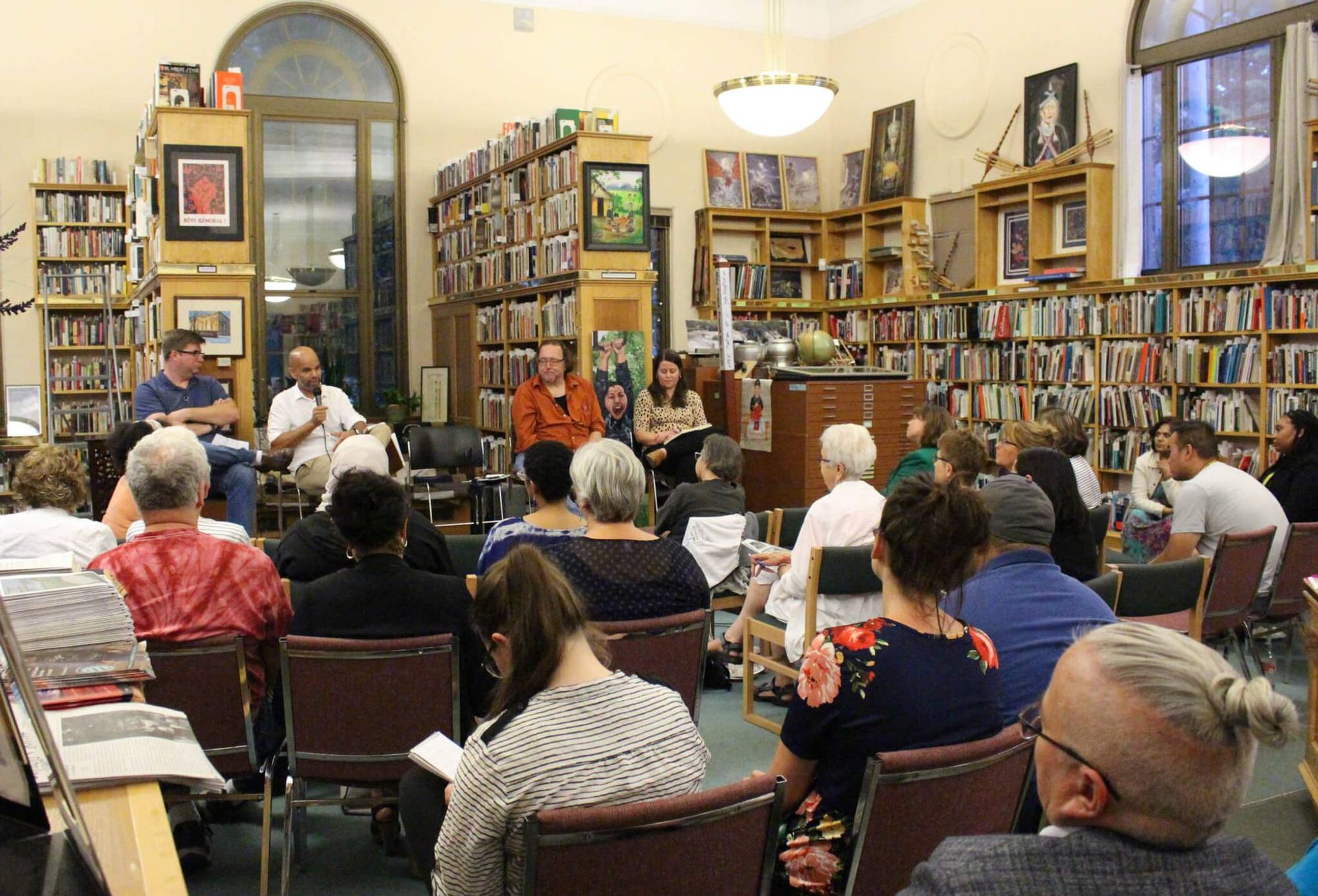
Kevin Dragseth, producer of Sold Out, admitted that the story of housing inequity was not on his radar before producing the film. After learning through the people he met in the filmmaking process, he shared, “I wanted to invite people into these lives and stories. This is the conversation that needs to happen.”
Minnesota Housing and Financing Agency Commissioner Jennifer Ho said at the forum, “Neighborhoods are enriched when they have a range of housing options, economic diversity and perspectives.”
The conversation turned to homelessness, which hit close to home for John Slade at MICAH, who was teary-eyed when sharing the statistic that, currently, there are 2,100 Saint Paul Public Schools students that are homeless. “Some of these kids are my son’s friends.”
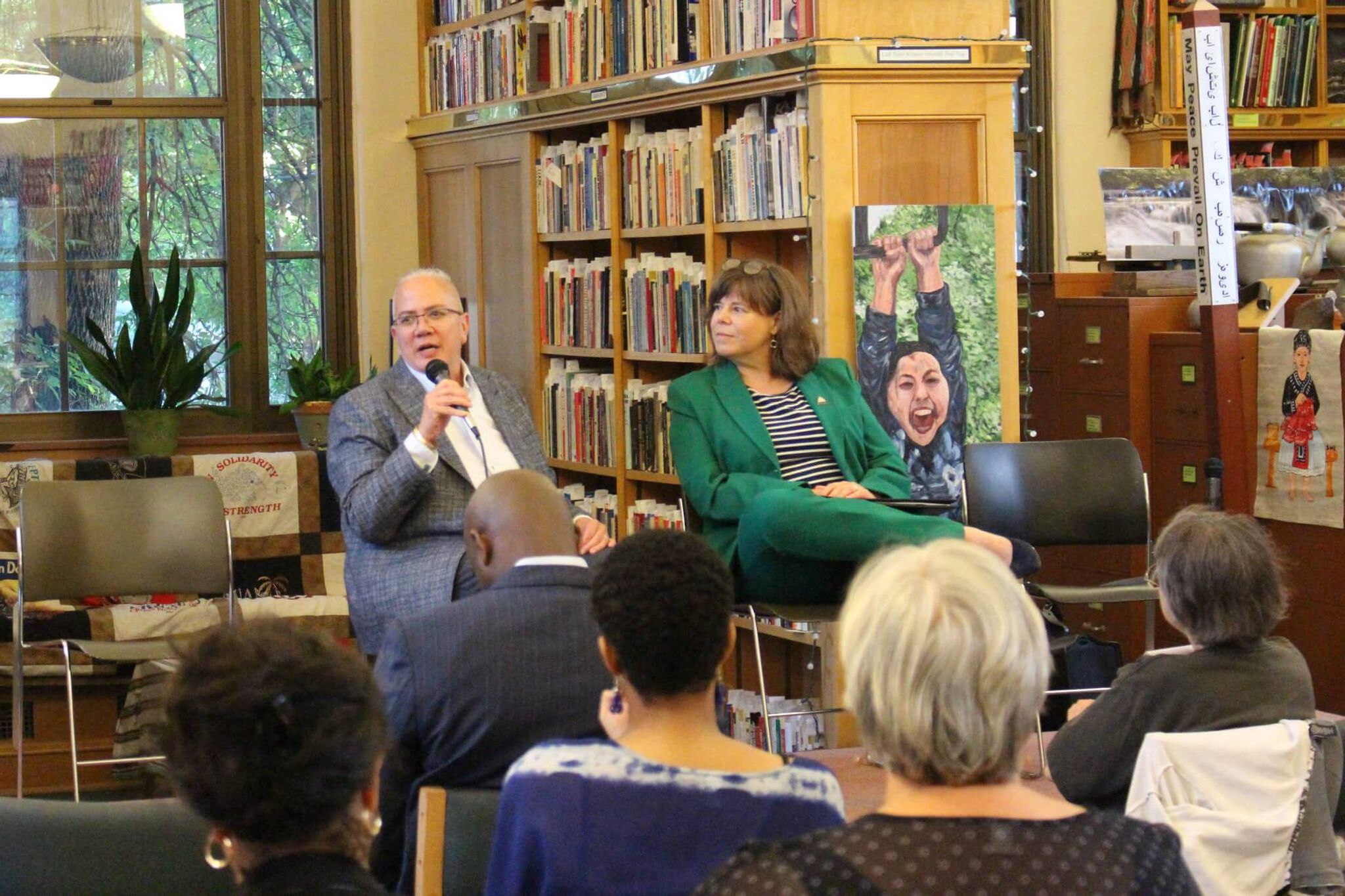
“Nobody should be trapped in the cycle of homelessness,” Ho said. “Our job in government is to pay attention to the lower income spectrum, what’s happening in housing at the lowest end. We need more housing. And we need specific housing for low income and fixed income, those who are getting squeezed out.”
Ho and her agency are working on this. They have a full agenda ahead of them and are advocating for more opportunities for people of color to become homeowners. “At Minnesota Housing, this is our charge. We can’t expect change overnight, but we can think about three steps:
"We will be intentional in race equity and how we listen to community. We will challenge ourselves to think about who gets a voice, what do we hear and what do we do in these communities?
"We need good data that we can break down. It is currently too rolled up to be meaningful.
"We know we can’t do this if we don’t look closely at ourselves. So our challenge is to learn, participate in different ways and ask, 'Are we inclusive?'”
Saint Paul Planning and Economic Development Deputy Director Kristin Guild talked about how cost-burdened so many in "the most livable city in America" are. About one-third are cost-burdened, spending 30 percent or more of their income on housing. Forty-eight percent of households of color and 50 percent of renters are cost-burdened as well.
Both spoke about the need for including community in decision-making.
“How do we center tenants in decisions we make in fair housing work?”
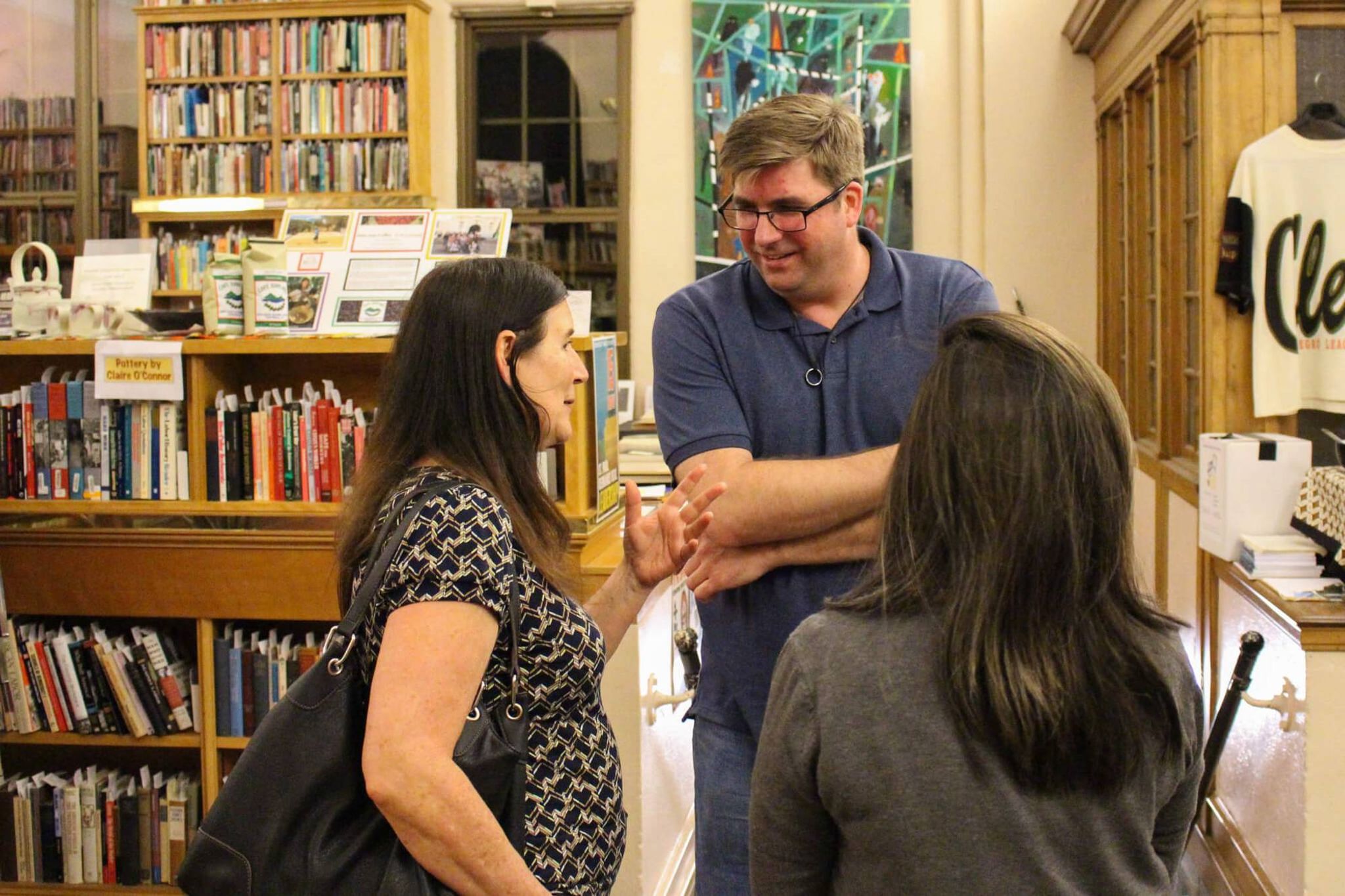
The event partners took this question and lots of the feedback from the entire summer series to heart. They sat down together in early September, and decided there was more work to be done to tell a new story about housing needs and desires on the East Side of Saint Paul.
What is next? What can be done?
We’re excited to share the creation of the first-ever East Side Housing Summit which will be held on November 12th, 2019. Save the date and participate!
Listen to Kevin Dragseth talk about Sold Out as a guest in a new podcast.
Read Mapping Prejudice co-founder Kirsten Delegard’s piece on how racial covenants took a firm hold in Minneapolis, “Emanuel Cohen and the Battle Against Anti-Semitism in Minneapolis.”
